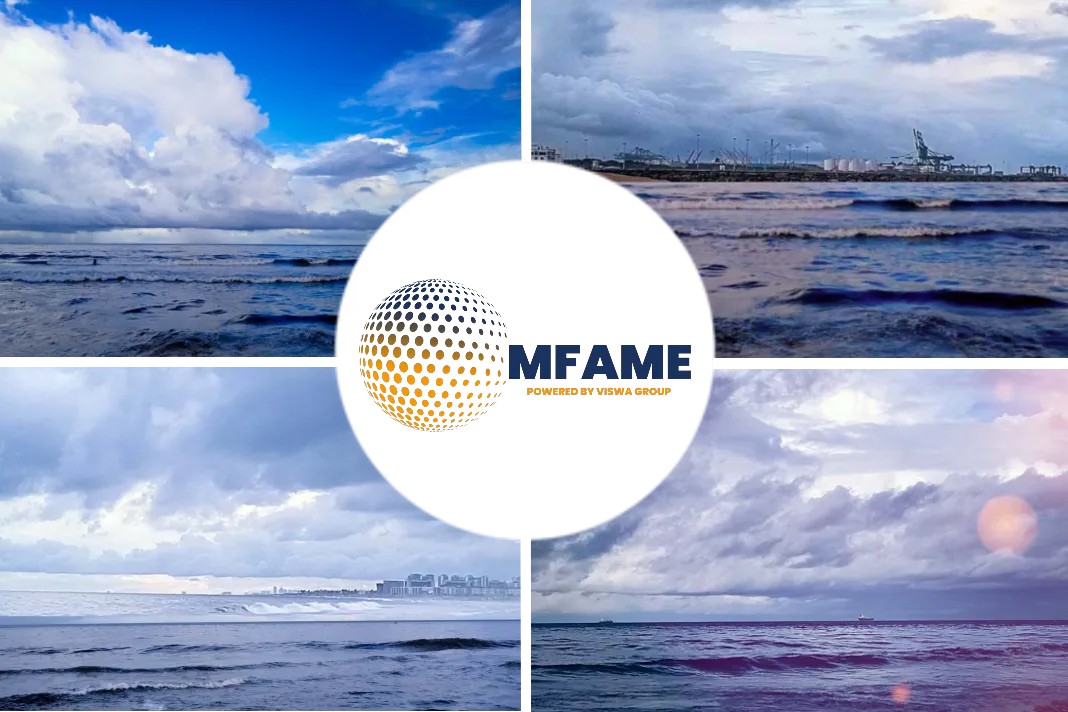
Over the last year there have been some significant changes in the composition of key tank cleaning companies, while the technology in use has been boosted by advances in algorithms and data collection, says an article published on Rivieram.
Acquisitive maritime services
In the first instance, acquisitive maritime services company Wilhelmsen Ships Service has acquired tank and cargo hold cleaning specialist Navadan. According to statements from both companies, completion of the acquisition is expected to be finalised Q1 2023.
Global maritime distribution
Throughout the last 25 years, Navadan has become a strong player within the tank and cargo hold cleaning sector in the commercial shipping industry. Peter Krogh acquired Navadan in 2011 and has led the company since. He has been looking for new opportunities on how to build the company for the future.
A preferred solution has been to find a maritime player with complementary competencies and resources, making Wilhelmsen and its global maritime distribution network a good match.
Vast knowledge
Navadan retains its brand and operates as a fully owned subsidiary of Ships Service for the time being. With Navadan bringing its vast knowledge, experience and ways of working to Ships Service, the two companies will offer tank and cargo hold cleaning customers with a market leading offer.
“Navadan has built a strong position as experts within its field. In addition, we like its way of operating with short lead times and quick deliveries, supported by a network of toll blenders. This is a highly complementary match for us, and I look forward to completing this transaction to keep growing both companies together,” said Wilhelmsen Ships Service president Kjell André Engen.
Good reason
“It has been a tremendous journey for the last 25 years, building Navadan into a strong supporting player for the commercial shipping industry, together with all our colleagues. We have good reason to be proud of what we have achieved, and the company is in better shape than ever,” said Navadan’s Mr Krogh.
First specialised cargo
In 2022, Wilhelmsen Ships Service entered into an agreement with Seven Seas to acquire 100% of their shares in its subsidiary, Stromme. When established in 1971, Stromme became the first specialised cargo hold cleaning company in the marine industry.
Patent pending on two-coat tank coating
PPG Protective and Marine Coatings has continued to refine its marine product range during 2022 and begins 2023 with plans for a further emphasis on its PHENGUARD range of tank coatings.
A phenolic epoxy tank lining, PPG PHENGUARD 985 features a patent-pending formulation that can be applied in as little as two coats, instead of the traditional three, without compromising chemical resistance. Customers choosing a two-coat solution (up to 2 x 160μm/6.3 mils) are now able to benefit from a higher dry film thickness allowance of readings up to 800μm/31.4 mils (in complex areas due to over-application).
In tests and real-world application examples, PPG has recorded a reduction in dry dock times by up to 22% by using a two-coat solution – a significant saving in time and costs.
Aggressive chemicals
Another value is the protection the coating offers to over 300 different cargoes that are composed of, or contain, fatty acids. These highly aggressive chemicals can cause problems for operators, as the temperature window required for their storage can be narrow and difficult to manage.
Raw material classifications
A third aspect of the PPG product development process is selecting sustainable and safe materials when manufacturing a product by actively seeking to avoid using chemicals of concern in new products and removing these substances from many existing products through reformulation, as raw material classifications have changed.
Filler package
According to PPG, PHENGUARD 985 benefits from this approach. Substances of concern have been reduced or totally removed without compromising its performance, including the minimisation of crystalline silica in the filler package.
Cargo tanks, drones and algorithms
Flyability is a leading provider of commercial drones used to inspect tanks. Its Elios model, which is ATEX-rated, was used by integrated survey and inspection solution company TEXO to inspect the cargo tanks of an FPSO in the North Sea.
Normally, an inspection of the wall of the tanks, which can be 40-m tall, would require days of preparation, including the assembly of costly scaffolding for the inspectors. The inspection itself could take two weeks, a substantial loss of revenue for the operator.
Drone-based inspection
Before undertaking the drone-based inspection, TEXO teamed up with classification society DNV to assess procedures. Since the initial drone inspection, TEXO has carried out many others and the savings are substantial. Only two people are required for the operation, which takes 96 hours, versus the two weeks using traditional methods, and the design of the Elios drone allows it to fly within the tight, confined spaces found in cargo tanks.
The drone can collect all the data the inspectors need to satisfy requirements, without human entry into the tanks.
Algorithmic software
One of the most exciting developments in the drone inspection sector in the last 12 months has been the link-up between Flyability, its Elios 3 drone and GeoSLAM.
‘SLAM’ refers to the third-party Simultaneous Localisation and Mapping algorithmic software that transforms Elios 3 LiDAR datasets into highly accurate 3D models, allowing high accuracy mapping, volumetric measurements, and georeferencing.
Range of data
This enables the data collected by the drone to be converted into highly detailed 3D images portraying a range of data.
Using this level of scanning and visualisation, the days of human entry into cargo tanks and dangerous spaces could be a thing of the past.
It’s Free! Click here to Subscribe!
Source: Rivieram






















